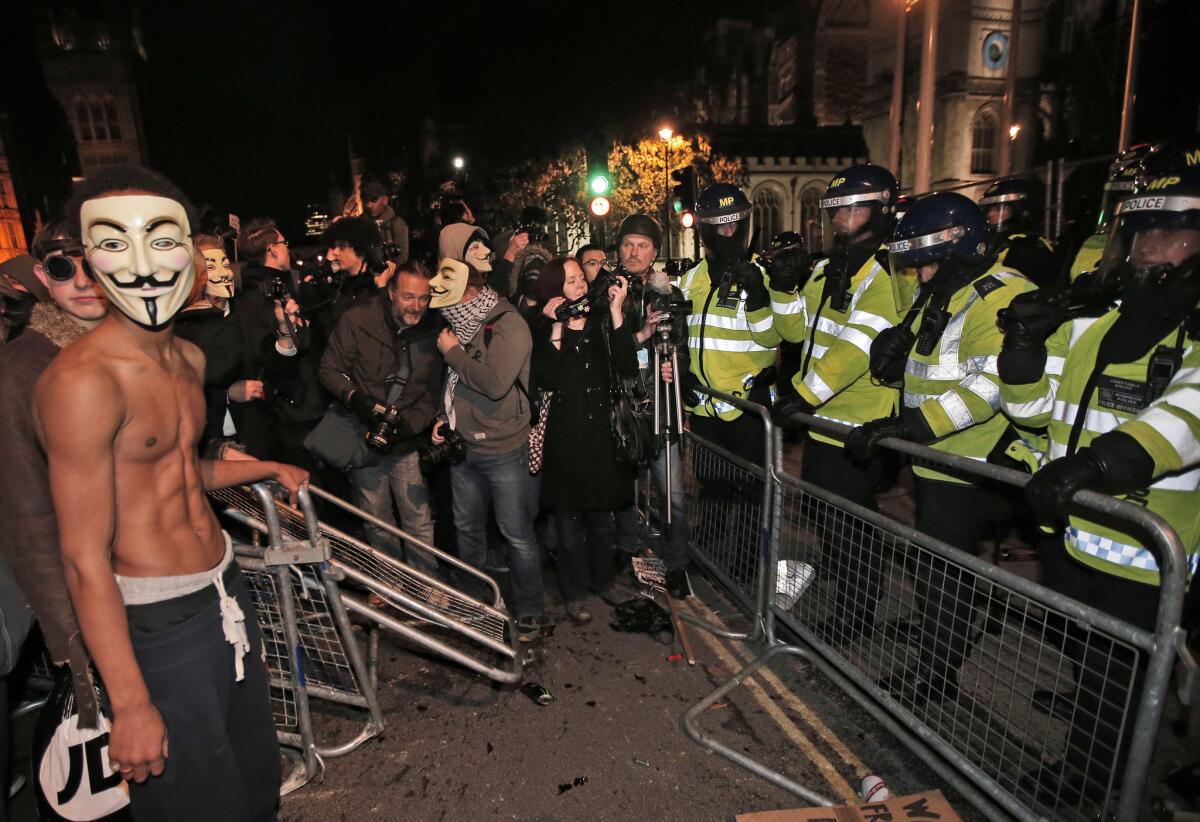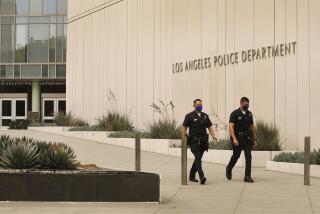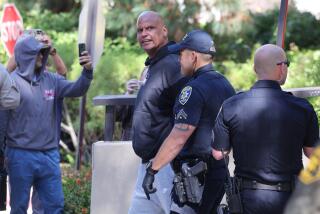British journalists slam police surveillance in lawsuit

- Share via
Reporting from London — British freelance video journalist Jason Parkinson had set his camera on a tripod outside London’s upscale Dorchester Hotel to film a protest against a group of delegates from an arms and defense trade show who were dining inside. He wore a red bandanna on his right wrist, a winter vest, a red-and-white striped shirt and a pair of blue jeans with a tear in the right knee.
The details of his attire are recorded in a 12-page police file Parkinson, 44, obtained through a freedom of information request which makes clear the extent to which British authorities have monitored him and other journalists as they carried out their work.
Britain’s National Union of Journalists, along with Parkinson and five others who obtained their own police intelligence records, filed a lawsuit this week against London’s Metropolitan Police and the British government. The action challenges police surveillance of journalists, including the retention of the information collected on a national database, as a violation of British law and the European Convention of Human Rights.
Earlier this month, the Times of London reported that a British police intelligence unit originally established to monitor domestic extremism now holds over 2,000 records related to journalists and photographers on a confidential database.
In recent weeks it was also revealed that British police successfully obtained the cellphone records of a reporter for the Sun newspaper who refused to identify his source in a major political story that cost a government minister his job.
Parkinson’s file dates back to 2005 and contains nearly 140 entries, including accounts of his wardrobe and his receding hairline, his whereabouts, other journalists he spoke with, and to which news outlets he planned to sell his footage.
“They’ve built a profile on me about who I am, what I’m doing, what my work is, and more importantly, what my network of contacts and associates are. And that’s a very disturbing thing,” Parkinson said in an interview. “They even did a criminal record check on my ex-partner from years ago to see if she had a criminal record.”
Parkinson mainly covers public protests and has no criminal record. He said he began to suspect police were monitoring him when uniformed officers he’d never met approached him at demonstrations he was filming.
“They would know my name,” Parkinson said. “And they seemed to know a lot of background information about me.”
He recalls that the details recorded in 2007 outside the Dorchester Hotel must have been obtained through what he thought at the time was a casual conversation with a police officer.
Part of the entry for that date in his police surveillance record reads: “PARKINSON was very talkative and claimed to be freelancing hoping to get any decent footage to SKY NERWS [sic].”
“What seems like just polite, idle chitchat with a police officer, who has now been discovered to be an intelligence officer, [has] ended up in my police file,” Parkinson said.
Times of London reporter Jules Mattsson said his file, also obtained through a freedom of information request, included the medical history of a family member.
Metropolitan Police officials declined to comment except to confirm they had received notification of the lawsuit and plan to “respond in due course.”
Michelle Stanistreet, general secretary of the National Union of Journalists, said the group would give its full support to members involved in the legal case.
“It is outrageous that the police are using their resources and wide-ranging powers to put journalists under surveillance and to compile information about their movements and work on a secret database,” Stanistreet said in a written statement. “There is no justification for treating journalists as criminals or enemies of the state, and it raises serious questions for our democracy.”
Parkinson wants police monitoring of journalists stopped. He said his surveillance record ends around the time he filed his FOI request earlier this year, leading him to believe the intelligence gathering is continuing.
He also thinks some information has been withheld and wants to obtain a complete record he can use in court to force the police to delete its files.
He said the surveillance measures have serious implications for a free press in Britain.
“It’s a very worrying state of affairs that journalists can be put under this amount of surveillance,” Parkinson said, “because we are holding these institutions to account.”
Werth is a special correspondent.
More to Read
Sign up for Essential California
The most important California stories and recommendations in your inbox every morning.
You may occasionally receive promotional content from the Los Angeles Times.













